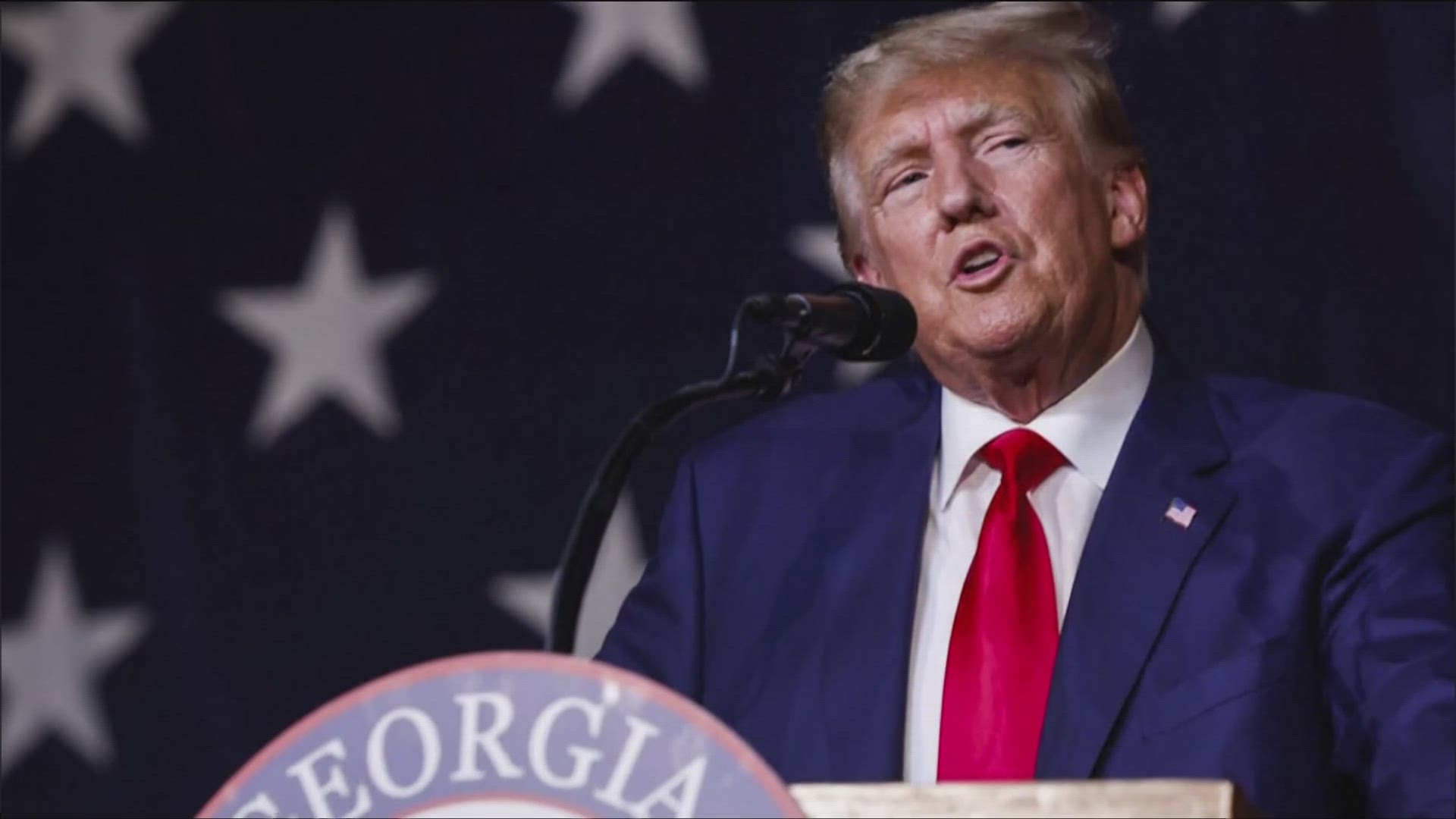ATLANTA — As Fulton County jurors consider criminal charges against Donald Trump in the coming weeks, the former president's alleged crimes in Georgia are heavily featured in a new federal felony indictment unveiled Tuesday evening.
Trump was indicted on four charges related to his attempts to overturn the 2020 election that culminated in the Jan.6, 2021 attack on the U.S. Capitol. Trump faces a charge of conspiracy to defraud the United States; conspiracy to obstruct an official proceeding; obstruction of, and attempt to obstruct, an official proceeding; and conspiracy against rights.
It is the third criminal case brought against Trump, who was indicted in New York in March over allegedly falsifying business records and by federal prosecutors in June for the alleged mishandling of classified documents at his Florida estate. Five pages of the 45-page indictment are solely dedicated to the actions taken by Trump and his former allies in Georgia. Federal prosecutors allege six unnamed co-conspirators assisted with Trump's efforts to hold on to the presidency.
"The purpose of the conspiracy was to overturn the legitimate results of the 2020 presidential election by using knowingly false claims of election fraud to obstruct the federal government function by which those results are collected, counted, and certified," the new indictment reads.
Fulton County District Attorney Fani Willis said charging decisions in her 2020 election investigation will come before Sept. 1. She's previously hinted that indictments could come before Aug. 18.
Here are the key Georgia events highlighted by Special Counsel Jack Smith in the new federal indictment:

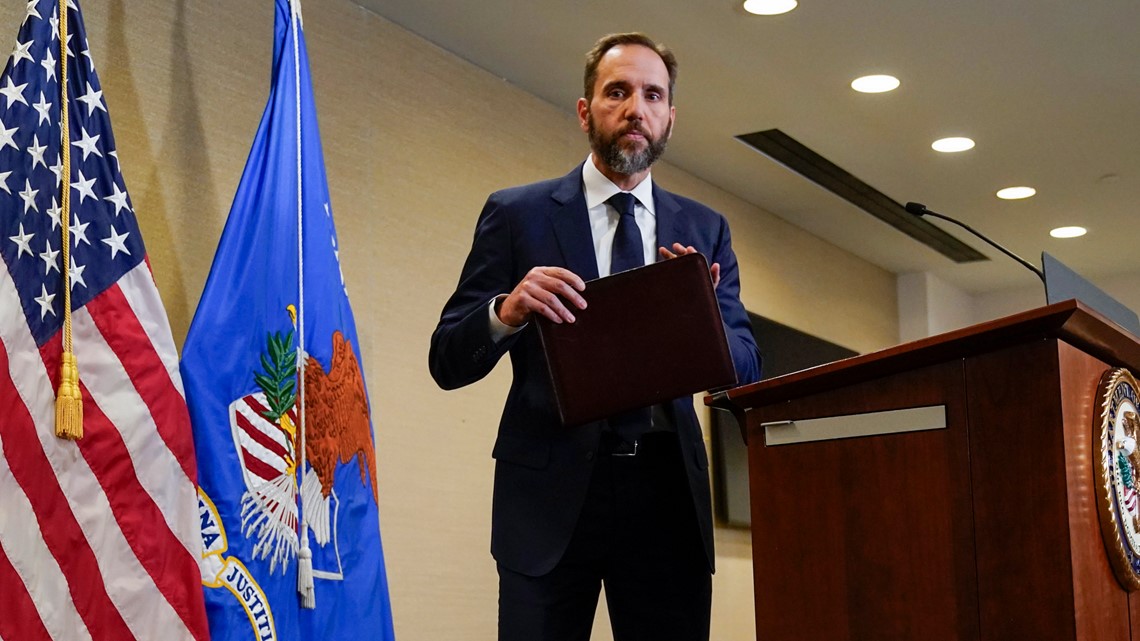
The Raffensperger call
The indictment alleges that Trump called Georgia Secretary of State Brad Raffensperger "to induce him to alter Georgia's popular vote count and call into question the validity of (Joe Biden) electors' votes."
On the nearly hour-long call, Trump asked Georgia's top election officials to "find" nearly 12,000 votes needed to overturn Biden's victory in the state.
That call launched the Fulton County election investigation. Raffensperger told 11Alive in January 2021 that the call felt like "David going against Goliath."
"Bit-by-bit, we debunk it," Raffensperger said. "But our megaphone's not that large, we have 40,000 Twitter followers and President Trump has 80 million."
The call came after state election officials debunked Trump's claims of voter fraud. Biden's victory had been confirmed multiple times, and the state's Democratic presidential electors submitted the necessary documents to Congress, state leaders and the National Archive. Legal challenges filed by Trump and his allies had failed.
"I do believe that his advisors have not served him well," Raffensperger said in 2021. "Rudy Giuliani came down to this building here - he's been here twice - and both times he's given false testimony that's been totally debunked."

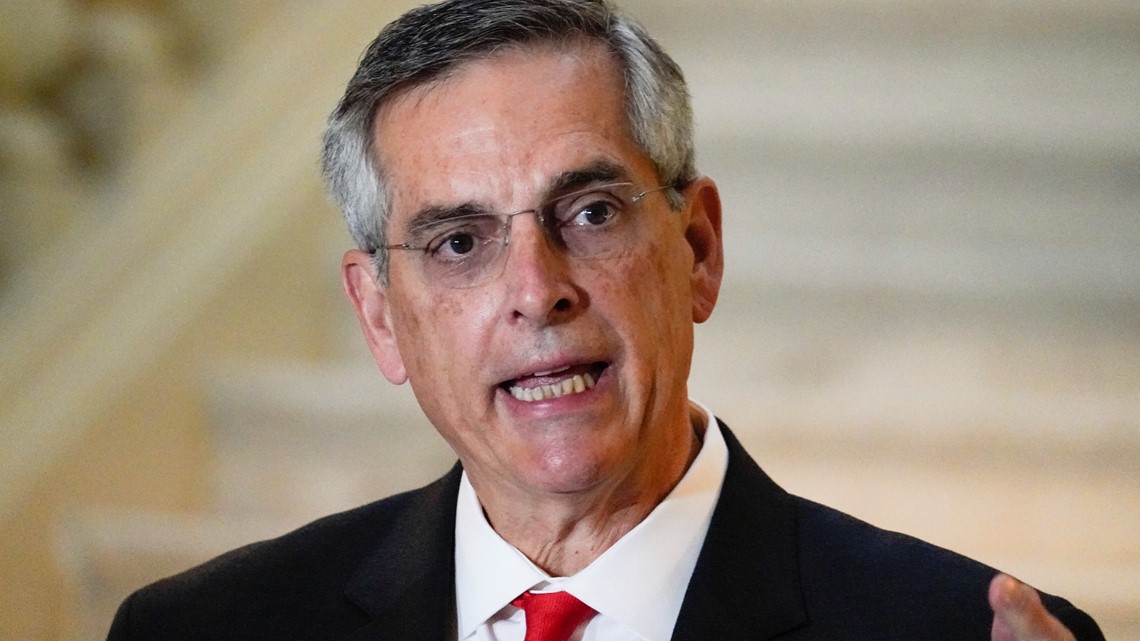
State Farm Arena
Tuesday's federal indictment also mentions meetings at the Georgia Senate and House of Representatives where allies of the former president made "knowingly false claims" about voter fraud in Georgia.
Federal prosecutors allege that "Co-Conspirator 1" made a presentation in front of a Georgia Senate subcommittee "with the intention of misleading state senators into blocking the ascertainment of legitimate electors."
During the nearly seven-hour hearing, Trump allies attempted to persuade lawmakers that fraud in multiple counties handed the state's electoral college votes to Biden.
An altered video from ballot counting at Atlanta's State Farm Arena was played at the hearing as Trump allies zeroed in on election workers Ruby Freeman and Shaye Moss. The mother-daughter duo were subjected to death threats over the claims. Georgia election officials quickly debunked the claims, and a State Election Board investigation officially cleared the workers of wrongdoing in June.

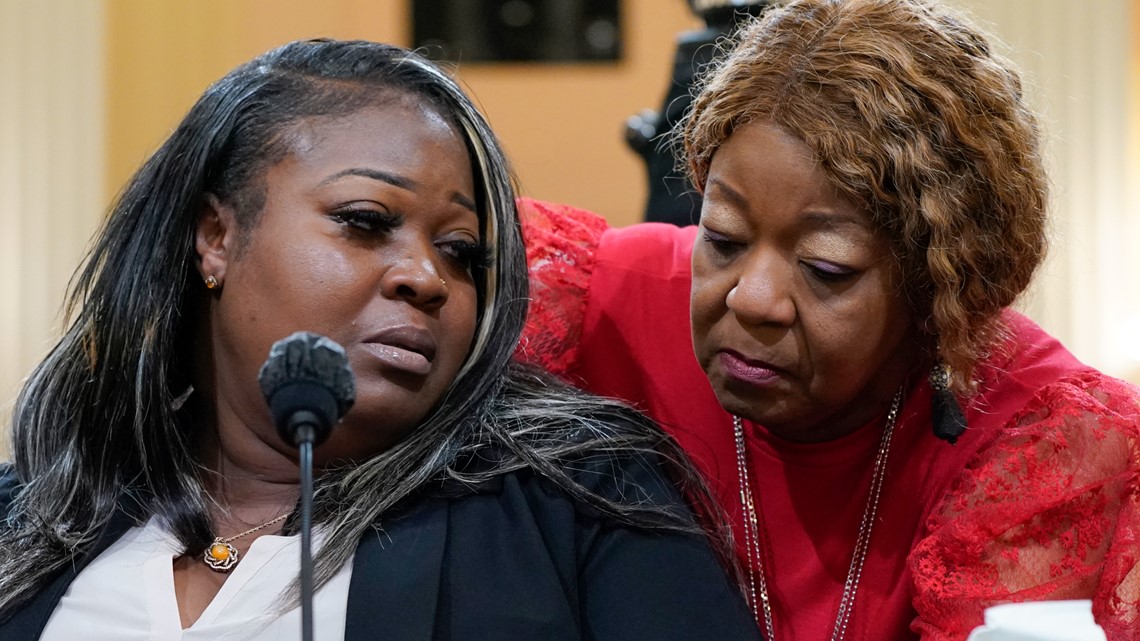
Fake electors
Georgia was one of several battleground states where Trump supporters posed as presidential electors in an effort to subvert the Electoral College process.
The indictment alleges that Trump and the unnamed co-conspirators used fake electors in Georgia and six other "targeted" states.
"This included causing the fraudulent electors to meet on the day appointed by federal law on which legitimate electors were to gather and cast their votes; cast fraudulent votes for the Defendant; and sign certificates falsely representing that they were legitimate electors," the indictment reads.
Sixteen Republicans met at the Georgia State Capitol and signed Electoral College documents falsely claiming that Trump won the state in 2020. The Georgia electors are:
David Shafer: The former chair of the Georgia GOP.
Burt Jones: Georgia’s current lieutenant governor. Jones served in the state senate during the 2020 election.
Shawn Still: A current Georgia state senator, Still served as party secretary during the 2020 election.
Cathleen Alston Latham: A retired school teacher, Lathan is the former Coffee County GOP chair. Latham is allegedly involved with the reported copying of election data in Coffee County. That matter is also being investigated by Fulton prosecutors.
Joseph Brannan: The general manager of a Columbus, Georgia, radio station group, Brannan served as party treasurer during the 2020 election.
James "Ken" Carroll: Carroll, who served in various GOP roles over the years, was the state party’s assistant secretary during the 2020 election.
Vikki Townsend Consiglio: A current board member of the Georgia Soil and Water Conservation Commission, Consiglio was the state party’s assistant treasurer during the 2020 election.
Carolyn Hall Fisher: Former chair of the Forsyth County Republican Party, Fisher served as first vice chair of the state party during the 2020 election.
Gloria Kay Godwin: A longtime GOP activist from Blackshear, Georgia.
David G. Hanna: A former CEO.
Mark W. Hennessy: A current appointee to the Board of Natural Resources, Hennessy owns car dealerships.
Mark Amick: A member of the Board of Governors for the Georgia Republican Foundation, Amick has also unsuccessfully ran for Milton City Council.
John Downey
Daryl Moody: The chairman of the Foundation Board of Governors for the Georgia Republican Foundation, Moody is also an attorney.
Brad Carver: An attorney and Republican activist.
C.B. Yadav: A small business owner in coastal Camden County, Yadav serves on the Georgians First Commission under the governor’s office.
At least half of the Georgia electors have accepted immunity deals as part of the 2020 election investigation. It's unclear which of the electors accepted the offer.
A Fulton County Superior Court judge previously ruled that Willis couldn't prosecute Jones because she hosted a fundraiser for Jones' Democratic opponent ahead of the November election.
The Prosecuting Attorneys Council of Georgia will determine if Jones should be investigated by a special prosecutor.
Legal experts previously told 11Alive that the Republicans could face forgery and fraud charges in addition to election-related charges. Attorneys for Shafer have argued in recent weeks that the electors acted properly and were "constitutionally protected."
The attorneys also said the Trump electors were acting in a historically appropriate manner, comparing their situation to the 1960 Democratic electors in Hawaii.
Republican Richard Nixon was originally declared the state's winner by 140 votes. During a court-ordered recount, the Democratic electors submitted documents stating Kennedy won the state. The recount found Kennedy won the state by 115 votes, and the Democratic Electoral College votes were counted.
Unlike in some of the other states, Georgia's Trump electors didn't include language in the documents indicating they submitted the certificates in case they were later ruled to be the proper electors.

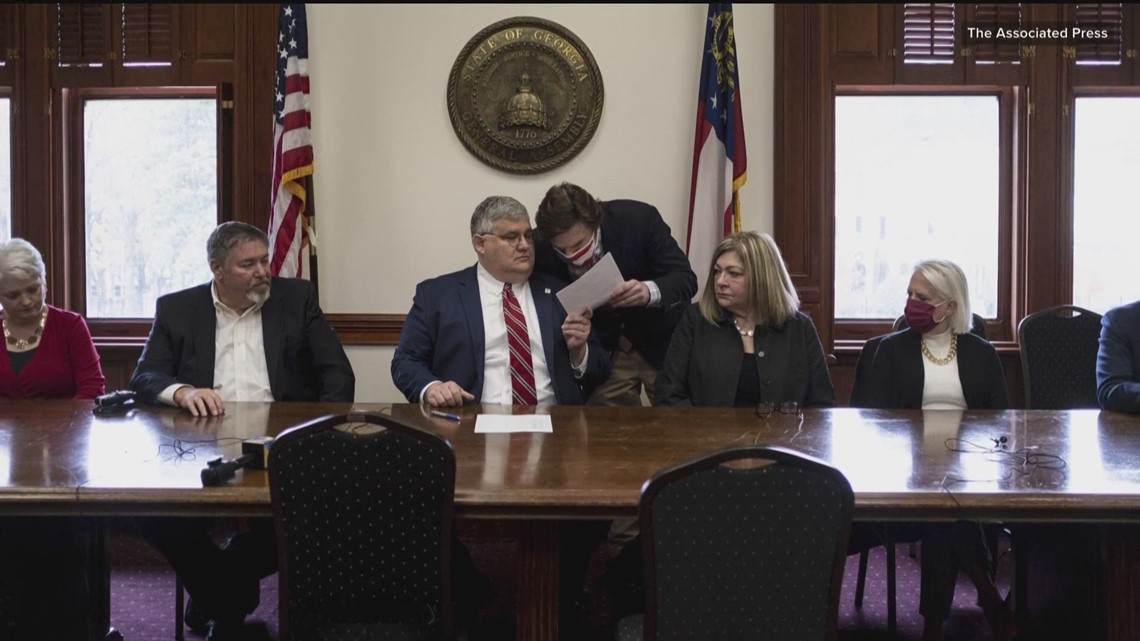
Other claims of voter fraud, lawsuits
The federal indictment also mentions various other "false claims of fraud" pushed by Trump and his allies about the election in Georgia.
Trump and others "insinuated that more than ten thousand dead voters had voted in Georgia" despite the fact that Georgia election officials told Trump that wasn't true.
President Donald Trump’s campaign tweeted accusations claiming that James Blalock of Covington, a deceased World War II veteran, voted in the election. 11Alive found that claim was false.
It was his widow, Mrs. James Blalock, who voted with her own ballot. Newton County officials confirmed that Agnes Blalock voted using her married name, a common way to register when Mrs. Blalock first started voting in the 1940s.
Other items mentioned in the federal indictment include:
- A Nov. 25, 2020 lawsuit filed against Georgia Gov. Brian Kemp "falsely alleging 'massive election fraud' accomplished through the voting machine company's election software and hardware" was included. That lawsuit, and others filed on Trump's behalf, failed.
- A Dec. 8 phone call Trump made to Georgia Attorney General Chris Carr to "pressure him to support an election lawsuit filed in the Supreme Court.'"
- A December 2020 tweet from Trump alleging the people running a signature verification audit in Cobb County were "terrible people."
- Trump signed a verification alleging election fraud on Dec. 31, 2020, as part of a lawsuit filed on his behalf against Kemp. The indictment refers to Trump's fraud claims as "false."

